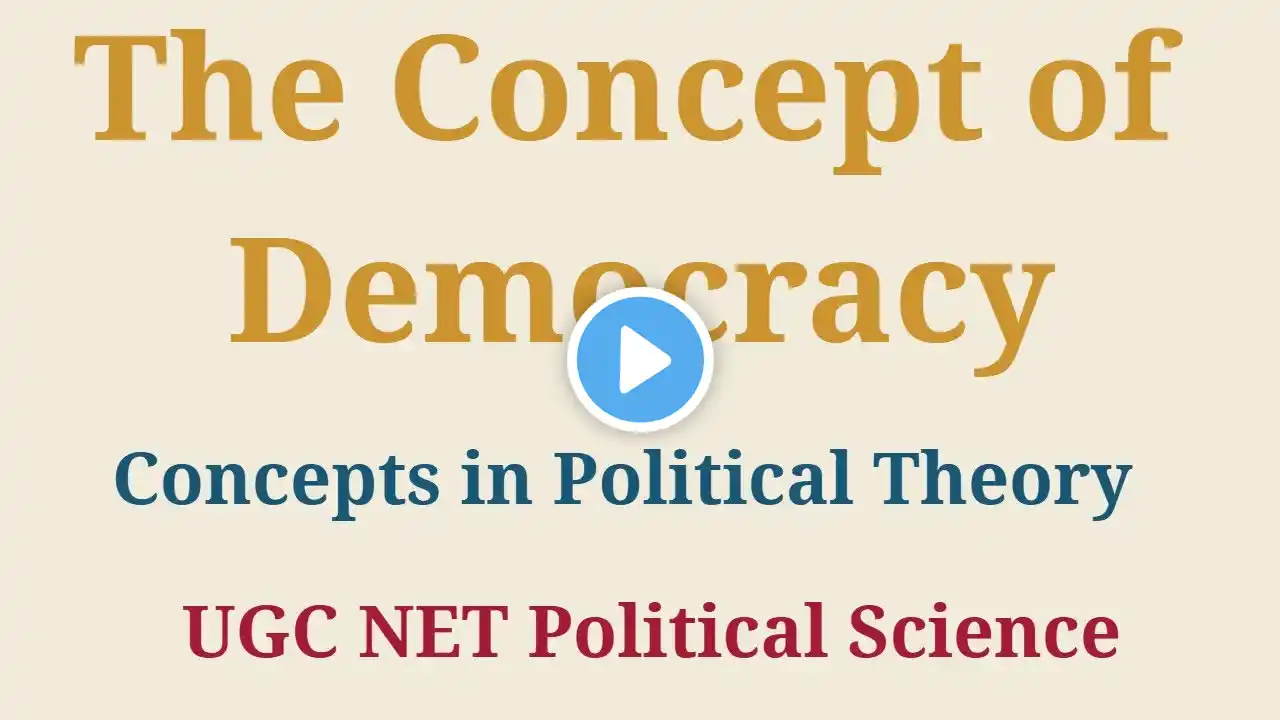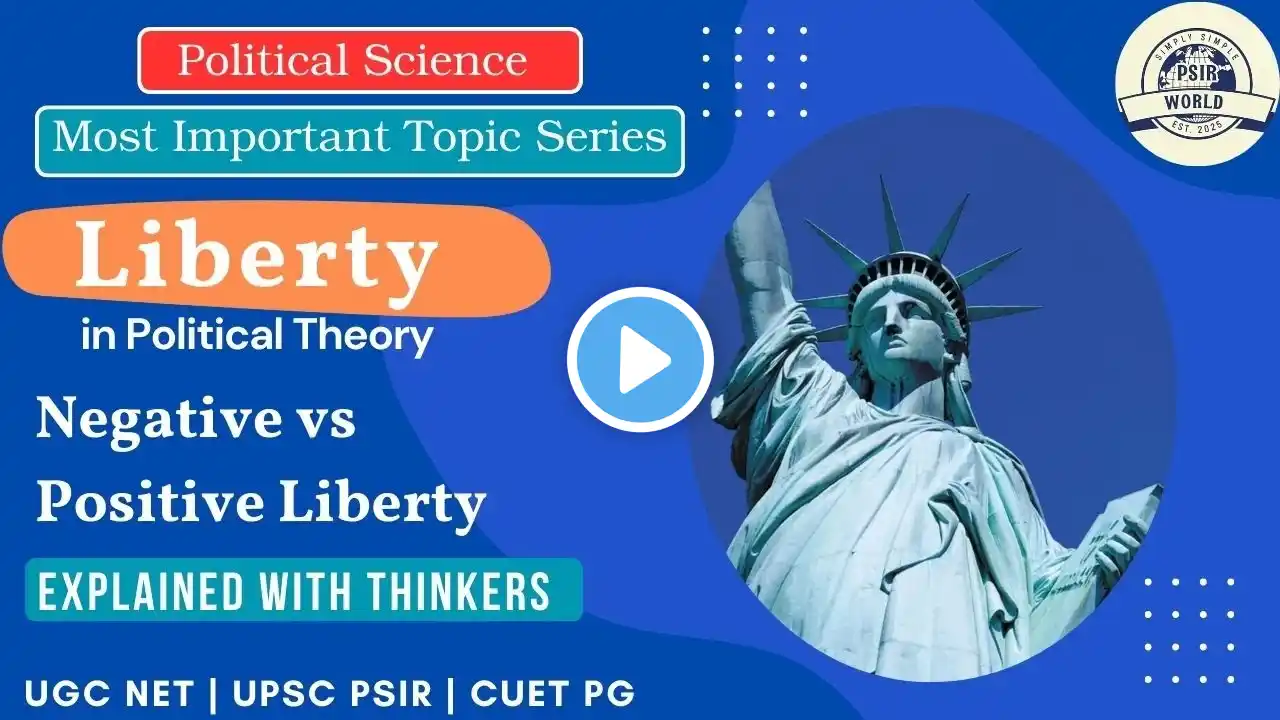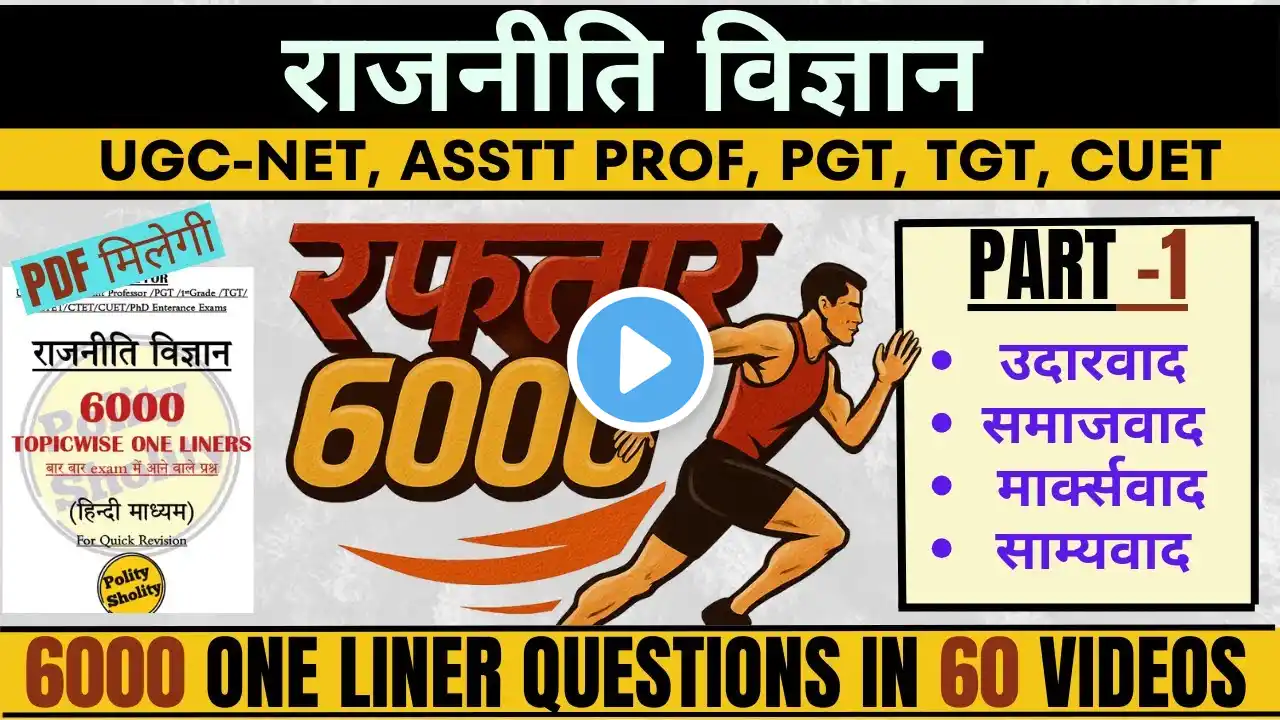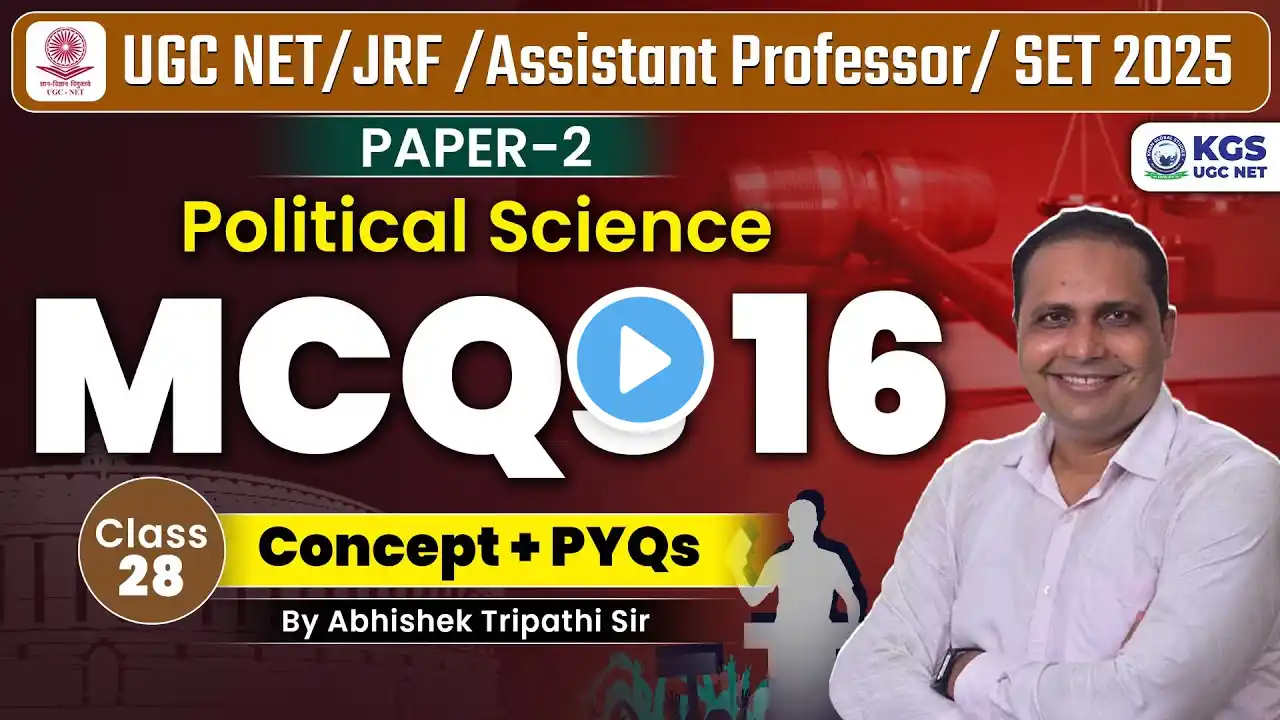
Liberty UGC NET Political Science | Political Theory Concepts | Political Theory PSIR | #ugcnet
The Concept of Liberty | UGC NET Political Science | UPSC PSIR | Political Theory The concept of liberty refers to the freedom of individuals to act according to their own will. There are two main types of liberty: negative liberty, which means freedom from interference by others, and positive liberty, which means the freedom to achieve one's potential. Thinkers like John Stuart Mill and Isaiah Berlin have debated these ideas. Mill focused on individual freedom, while Berlin warned against the dangers of imposing too much control in the name of freedom. Liberty is essential in democracies, but it must be balanced with equality and justice to ensure fairness. In this session, we cover: The meaning and significance of liberty in political thought Different types of liberty: negative liberty (freedom from interference) and positive liberty (freedom to achieve one's potential) Key thinkers: Isaiah Berlin, John Stuart Mill, and Jean-Jacques Rousseau The relationship between liberty, equality, and justice How liberty is interpreted in democratic societies and its limits Relevance of liberty in contemporary political debates and governance #ConceptOfLiberty #UGCNETPoliticalScience #UPSCPSIR #PoliticalTheory #IsaiahBerlin #JohnStuartMill #Rousseau #NegativeLiberty #PositiveLiberty #PoliticalScienceLectures #UPSCPSIRPreparation #UGCNET2025 #LibertyAndEquality #PoliticalThought


















